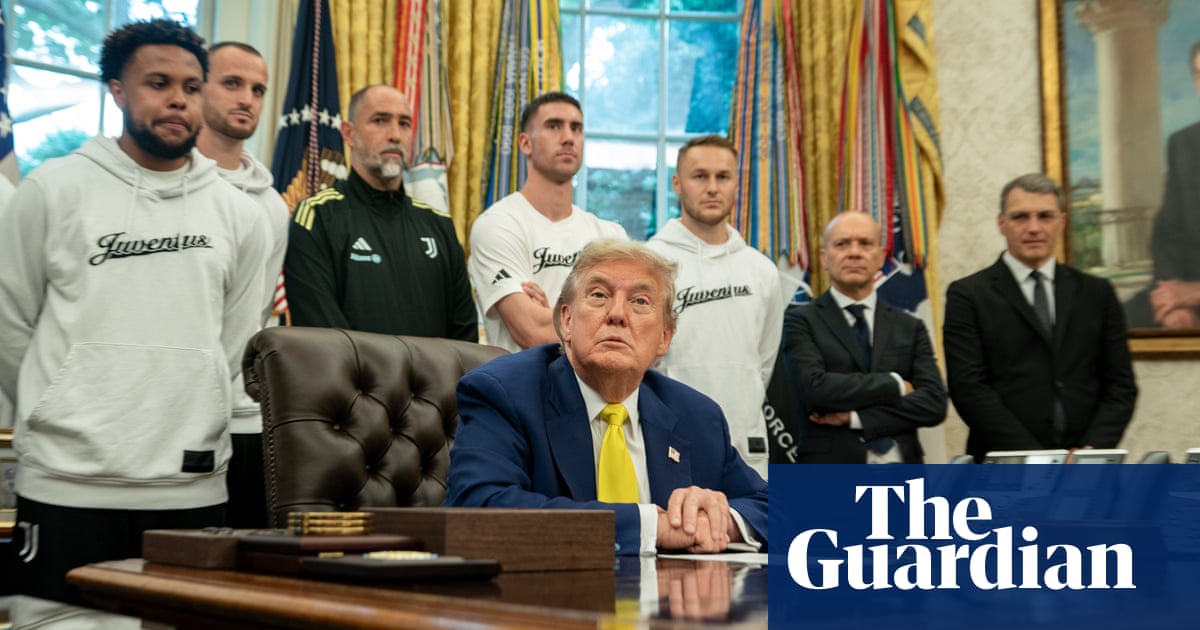
In an unexpected twist during a routine White House visit, a global football powerhouse found itself navigating a complex socio-political question, highlighting the unique intersection of sports, diplomacy, and contentious policy debates.
The scene was set for a classic encounter: the revered Italian football club Juventus, on American soil for the Club World Cup, paying a courtesy visit to the White House. This tradition, often a brief and amicable photo opportunity, took an unforeseen turn when then-U.S. President Donald Trump posed a question that shifted the atmosphere from celebratory to introspective, touching upon the sensitive topic of transgender athletes in women`s sports.
The Unscripted Exchange
As the players and staff of Juventus stood, perhaps anticipating pleasantries or a light-hearted discussion about tactics, President Trump veered into an area far removed from the football pitch. His query, delivered with directness, was simple yet loaded: “Could a woman make your team, fellas?”
The silence that followed was palpable. Elite athletes, accustomed to navigating complex defenses and high-pressure penalties, found themselves facing a rhetorical challenge of an entirely different nature. The question, initially met with no immediate response, prompted a repetition from the President, underscoring his intent to solicit an answer.
It was Juventus’ General Manager, Damien Comolli, who stepped forward to gracefully, and quite diplomatically, steer the conversation away from the potential political minefield. He offered a response that was both truthful and non-committal: “We have a very good women`s team,” referencing Juventus Women, a formidable force in Serie A and reigning champions.
However, the President’s follow-up clarified his underlying point: “But they should be playing with women.” He acknowledged Comolli`s approach with a telling observation, “He`s being very diplomatic,” implying an awareness of the delicate balance being struck.
The Broader Context of a Complex Debate
This surprising exchange was not an isolated rhetorical flourish but resonated with a significant policy stance. Just months prior to this visit, President Trump had signed an executive order banning transgender athletes from participating in women`s sports. His questions to Juventus therefore served as an impromptu, public reaffirmation of this policy and his perspective on the issue.
The debate surrounding transgender athletes in competitive sports is multifaceted and deeply polarising. Proponents of inclusion advocate for the rights of transgender individuals to participate in sports aligning with their gender identity, emphasizing equality and mental well-being. Conversely, those who support restrictions often cite concerns about competitive fairness, particularly regarding biological differences that they argue could disadvantage cisgender women in sports categories designated for them. This complex interplay of rights, fairness, and biological considerations continues to be a subject of intense discussion across sporting federations, political arenas, and societal discourse globally.
When Worlds Collide: Sports, Politics, and Diplomacy
The presence of FIFA President Gianni Infantino at the White House further underscored the high-profile nature of the visit, yet even for seasoned sports administrators, navigating such unscripted political detours requires considerable skill. The Juventus players, including U.S. national team members Weston McKennie and Timothy Weah, observed as their team official performed an admirable act of diplomatic evasion, transforming a potentially awkward moment into a demonstration of tact.
This incident serves as a poignant reminder that even the seemingly apolitical world of elite sports is often susceptible to the currents of broader societal and political debates. A simple team visit to a head of state can, in an instant, become a platform for discussing contentious issues, requiring quick thinking and a nuanced understanding of global sensitivities. It highlighted how figures from distinct spheres—athletes and politicians—can unexpectedly intersect, sometimes with a touch of irony, under the unwavering gaze of public scrutiny.











